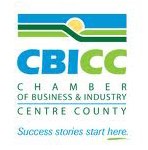A common misconception is that tax cuts are for the rich. This is nothing more than political “get-me-re-elected” talk. It is obvious that the rich make up such a small portion of the tax paying population, the politicians view this as a small group of voters. There are more poor, middle class, and upper middle class voters than there are rich voters. So don’t be surprised when a politician favors the area where there are more voters. The tactic is as old as dirt. Divide and conquer, blame someone else for your problems, so you will vote for them. These are not poor or middle class people running for office. Remember, these people will spend millions to get elected to a position that pays a couple of hundred thousand dollars a year. Makes sense, right?
I would like to compare our system of paying taxes to ten people going out to dinner. The common belief is the rich get more back than us ordinary tax payers and that is not fair. The reality is, the rich pay more so they should get more back.
If ten people went out to dinner, and when the bill came we used the rules of the tax code to pay this bill, it would look something like this: The bill for dinner for ten came to $100.00; Persons # 1 through #4 would pay nothing; Person #5 would pay $1.00; Person #6 would pay $3.00; Person #7 would pay $7.00; Person #8 would pay $12.00; Person #9 would pay $18.00, and; Person #10 (the richest person) would pay $59.00.
If the restaurant owner decided to give the group a 20% discount, the diner for 10 is only $80.00. How should they divide dup the $20.00 savings? Remember, the first 4 paid nothing to begin with, so the savings should be divided between the remaining six. Twenty dollars divided by six equals $3.33 each. If you subtracted that amount from those six people’s share, then person’s #5 and #6 would be paid to eat their meals. This doesn’t seem fair, so the equitable answer is to reduce each person’s bill by the same percentage. The results look like this: Persons #1 through #5 would pay nothing; Person #6 would pay $2.00; Person #7 would pay $5.00; Person #8 would pay $9.00; Person #9 would pay $12.00; Person #20 (the richest person) would pay $52.00 instead of $59.00.
Now everyone starts comparing and complaining. Person #6 complains because he only got $1.00 back and Person #10 got $7.00 back. “Why should he get $7.00 back when I only got $2.00?” shouted person #7. “Why should the wealthy get all the breaks?” Person #1 through #$ yelled “We didn’t get anything back. This system exploits the poor!” Then the nine people surrounded Person #10 and beat him up. That seemed to satisfy them. The next time they went out to dinner, Person #10 did not show up, so they sat down and ate without him. When they were finished the bill came and they discovered they were $52.00 short.
The people who pay the highest taxes get the most benefit from a tax deduction. It’s common sense math. If you tax them too much and attack them for being wealthy, they may decide not to show up at the table anymore. For everyone involved that would create an unintended consequence. Everyone would have to pay more.




 Clarity Coaching Tips
Clarity Coaching Tips Common Sense Videos
Common Sense Videos It’s Your Money
It’s Your Money
